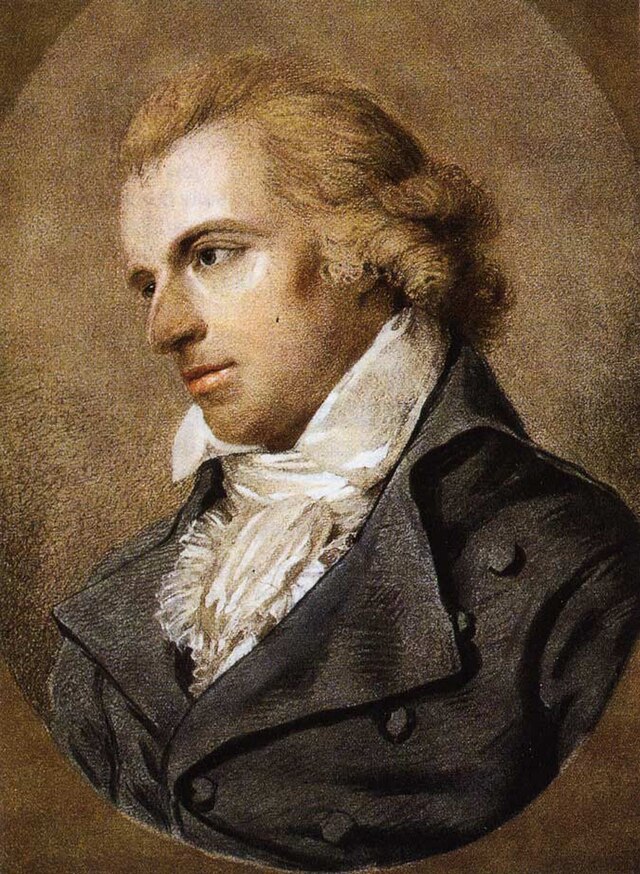Top Qs
Timeline
Chat
Perspective
1805 in Germany
From Wikipedia, the free encyclopedia
Remove ads
Events from the year 1805 in Germany.
Incumbents
Holy Roman Empire
- Francis II (5 July 1792 – 6 August 1806)
Important Electors
- Baden- Charles Frederick (27 April 1803 – 6 August 1806)
- Bavaria- Maximilian I (16 February 1799 – 6 August 1806)[1]
- Saxony- Frederick Augustus I (17 December 1763 – 20 December 1806)[2]
- Würzburg- Ferdinand III (25 December 1805 – 6 August 1806)
- Württemberg - Frederick I (1803 – 30 October 1816)[3]
Kingdoms
- Kingdom of Prussia
- Monarch – Frederick William III of Prussia (16 November 1797 – 7 June 1840)[4]
Grand Duchies
- Grand Duke of Mecklenburg-Schwerin
- Frederick Francis I (24 April 1785 – 1 February 1837)[5]
- Grand Duke of Mecklenburg-Strelitz
- Charles II (2 June 1794 – 6 November 1816)[6]
- Grand Duke of Oldenburg
- Grand Duke of Saxe-Weimar
- Karl August (1758–1809) Raised to grand duchy in 1809
Principalities
- Schaumburg-Lippe
- George William (13 February 1787 – 1860)
- Schwarzburg-Rudolstadt
- Louis Frederick II (13 April 1793 – 28 April 1807)[8]
- Schwarzburg-Sondershausen
- Günther Friedrich Karl I (14 October 1794 – 19 August 1835)
- Principality of Lippe
- Leopold II (5 November 1802 – 1 January 1851)[9]
- Principality of Reuss-Greiz
- Heinrich XIII (28 June 1800 – 29 January 1817)
- Waldeck and Pyrmont
- Friedrich Karl August (29 August 1763 – 24 September 1812)
Duchies
- Duke of Anhalt-Dessau
- Leopold III (16 December 1751 – 9 August 1817)[10]
- Duke of Saxe-Altenburg
- Duke of Saxe-Hildburghausen (1780–1826) - Frederick[5]
- Duke of Saxe-Coburg-Saalfeld
- Francis (8 September 1800 – 9 December 1806)
- Duke of Saxe-Meiningen
- Bernhard II (24 December 1803 – 20 September 1866)[11]
- Duke of Schleswig-Holstein-Sonderburg-Beck
- Frederick Charles Louis (24 February 1775 – 25 March 1816)[12]
Remove ads
Other
Events
- 7 April – Beethoven's Symphony No. 3, Eroica, has its public premiere at the Theater an der Wien in Vienna under his baton.
- 9 April - The first Weltsekttag to celebrate the resistance to Napoleon.
- 8 October – Battle of Wertingen
- 9 October – Battle of Günzburg
- 11 October – Battle of Haslach-Jungingen
- 14 October – Napoleonic Wars: War of the Third Coalition – Ulm Campaign: Battle of Elchingen – An Austrian corps under Johann von Riesch is defeated by Marshal Ney, near Elchingen, Bavaria.
- 16–19 October – War of the Third Coalition: Ulm Campaign – Battle of Ulm: Austrian General Mack von Leiberich is forced to surrender his entire army to Napoleon, after being surrounded.
- 3 November – Treaty of Potsdam
- 20 November – Beethoven's only opera Fidelio, in its original form (known retrospectively as Leonore), is premiered at the Theater an der Wien in Vienna, which at this time is under French military occupation.
- German Army surgeon Philipp Bozzini invents the lichtleiter, ancestor of the endoscope, for examination of bodily orifices.[13][14][15]
- Grand Duchy of Würzburg is established.
Births
- 27 January – Samuel Palmer, English artist (died 1881)
- 13 February – Peter Gustav Lejeune Dirichlet, German mathematician (died 1859)
- 8 April – Hugo von Mohl, German botanist (died 1872)

- 30 July – Rudolf Wagner, German anatomist, pathologist (died 1864)
- 27 September – George Müller, Prussian evangelist, founder of the New Orphan Houses, Ashley Down, Bristol in England (died 1898)
- 14 November – Fanny Mendelssohn, German composer, pianist (died 1847)[16]
Remove ads
Deaths

- 17 January – Paschen von Cossel, German lawyer (born 1714)
- 20 February – Justus Claproth, German jurist, inventor of the de-inking process of recycled paper (born 1728)
- 9 May – Friedrich Schiller, German playwright (born 1759)

- 5 October - Eleonore Prochaska, German heroine soldier (born 1785)
References
Wikiwand - on
Seamless Wikipedia browsing. On steroids.
Remove ads
